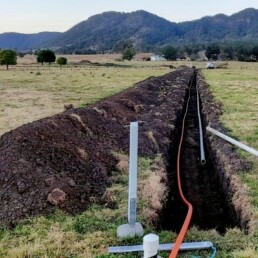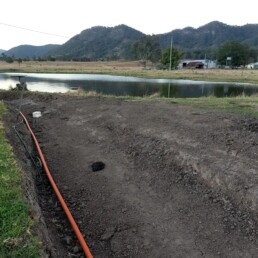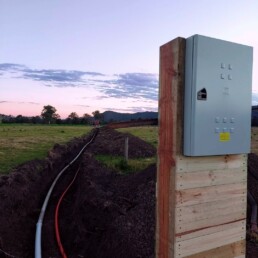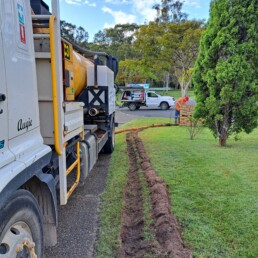Benefits of Underground Power & Cabling
The power grid is a crucial infrastructure that enables our modern way of life. While most of us take electricity for granted, the way it’s delivered matters. In this blog post, we’ll explore the benefits of underground power, which is becoming an increasingly popular alternative to traditional overhead power lines in Australia. From improved reliability to reduced environmental impact, there are many advantages to underground power that we’ll dive into. So, let’s explore how this innovative technology is changing the way we power our world.
More reliable and less vulnerable to weather-related disturbances such as high winds, heavy rain, or snow.
Underground electrical systems are less vulnerable to weather-related disruptions as the cables and equipment are buried underground, away from harsh weather conditions. This means that power outages due to weather events are less frequent, and the system can better withstand natural disasters such as hurricanes, tornadoes, and snowstorms.
Less visually obtrusive, underground cabling makes them more aesthetically pleasing
Unlike overhead electrical systems, underground electrical systems are not visually obtrusive. The cables and equipment are buried underground, and there are no poles or wires obstructing the view, making them a preferred option in residential and commercial areas.
Reduced risk of accidental contact with power lines, which can be dangerous and potentially fatal
Overhead power lines can be a safety hazard as they can come into contact with buildings, trees, or other structures, posing a risk of electrocution. Underground electrical systems eliminate this risk, as the cables and equipment are buried below the ground.
Less susceptible to damage from falling objects or vehicle collisions compared to overhead lines
Overhead power lines are vulnerable to damage from falling objects, such as trees or branches, or vehicle collisions. Underground electrical systems are protected from such damage, as the cables and equipment are buried below the ground.
Reduced maintenance costs, as there is no need for regular trimming of trees or vegetation that can interfere with overhead lines
Overhead power lines require regular maintenance to trim trees and vegetation that can interfere with the lines, leading to power outages. Underground electrical systems eliminate this need, as the cables and equipment are buried underground and do not require regular maintenance.
Increased lifespan of equipment, as underground cables and equipment are protected from the elements and have a longer lifespan than overhead systems
Underground electrical systems are protected from harsh weather conditions, which can lead to damage or corrosion of equipment. This means that underground cables and equipment have a longer lifespan than overhead systems.
Can accommodate increased power demand, as underground cables can carry more power compared to overhead lines
Underground cables can carry more power compared to overhead lines, making them suitable for areas with high power demand. This is because underground cables have a lower resistance to electrical current, which means less energy is lost as heat during transmission.
Offers increased security, as underground cables are less susceptible to theft or tampering compared to overhead systems
Overhead power lines are vulnerable to theft and tampering, as they can be accessed easily. Underground electrical systems eliminate this risk, as the cables and equipment are buried below the ground, making them less susceptible to theft or tampering.
Get reliable, safe, and visually pleasing electrical systems that are less vulnerable to weather disturbances and other hazards. Contact us today to learn more about how we can help you with your underground electrical needs.




